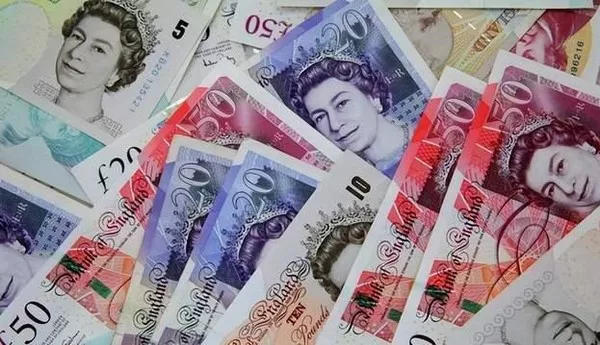The conversion of 500 pounds to euros is a common question in international finance and travel. Understanding this conversion involves several factors and has various implications. This article will delve into the specifics of the exchange rate, the calculation process, influencing factors, forecasts, financial advice, legal and tax implications, economic indicators, global market impact, and a conclusion to tie it all together.
Current Exchange Rate
The exchange rate between the British Pound (GBP) and the Euro (EUR) fluctuates continuously due to market conditions. As of the latest data, the exchange rate might be around 1 GBP = 1.17 EUR. This means that 1 British Pound is equivalent to 1.17 Euros. However, this rate can change frequently based on a variety of economic indicators and market sentiments.
Conversion Calculation
To convert 500 pounds into euros, one would use the current exchange rate. Given an exchange rate of 1 GBP = 1.17 EUR, the conversion calculation is straightforward:
500 GBP×1.17 EUR/GBP=585.20 EUR
Therefore, 500 British Pounds is equivalent to 585.20 Euros at this exchange rate. It is important to note that this calculation assumes no fees or commissions, which can affect the final amount received.
Factors Influencing Exchange Rates
Exchange rates are influenced by a myriad of factors, both economic and geopolitical. Key factors include:
Interest Rates: Central banks, like the Bank of England and the European Central Bank, set interest rates that influence exchange rates. Higher interest rates offer lenders in an economy a higher return relative to other countries. Thus, higher interest rates attract foreign capital and cause the exchange rate to rise.
Inflation Rates: Generally, a country with a lower inflation rate exhibits a rising currency value as its purchasing power increases relative to other currencies. Conversely, a higher inflation rate typically depreciates the currency.
Political Stability and Economic Performance: Countries with less risk for political turmoil and better economic performance are more attractive to foreign investors. This increased demand for a country’s currency will cause the exchange rate to strengthen.
Public Debt: Countries with large public deficits and debts are less attractive to foreign investors due to the risk of default or devaluation. Therefore, higher public debt can lead to a depreciation of the currency.
Terms of Trade: The balance of exports and imports affects currency value. A surplus typically strengthens the currency, while a deficit weakens it.
Speculation: If investors believe a currency will strengthen in the future, they will buy more of that currency now. This speculative demand can drive up the currency value.
Forecast and Trends
Predicting future exchange rates involves analyzing current economic trends and indicators. Many analysts use tools such as historical data, econometric models, and technical analysis to forecast movements. Current trends suggest that exchange rates will continue to be influenced by factors like Brexit developments, economic recovery post-COVID-19, and monetary policies from central banks.
In the short term, exchange rates may fluctuate due to geopolitical events, economic data releases, and market sentiment. Long-term trends will likely depend on fundamental economic shifts, such as changes in trade relationships, economic growth differentials, and structural reforms.
Financial Advice
When converting large sums of money, like 500 pounds to euros, it is prudent to:
Monitor Exchange Rates: Keeping an eye on exchange rate movements can help you convert money at a more favorable rate.
Use Forward Contracts: These financial instruments allow you to lock in a current exchange rate for a future date, protecting against adverse movements.
Consider Transfer Fees: Banks and currency exchange services often charge fees or offer less favorable rates. Comparing different providers can save you money.
Diversify Currency Holdings: Holding assets in multiple currencies can hedge against volatility in any single currency.
See Also:100 Pounds in Indian Rupees Today
Consult a Financial Advisor: For substantial sums, getting professional advice can ensure you make informed decisions.
Legal and Tax Implications
Currency conversion can have several legal and tax implications:
Taxable Gains/Losses: Profits from currency conversions can be subject to capital gains tax. Similarly, losses can sometimes be deductible.
Reporting Requirements: Depending on the jurisdiction, large currency transactions may need to be reported to tax authorities.
Compliance: Ensure compliance with anti-money laundering (AML) regulations, which require reporting large transactions to prevent illegal activities.
Estate Planning: Currency holdings and conversions can affect estate planning and the value of inherited assets.
Cross-Border Transactions: Different countries have varying regulations regarding currency exchange, so understanding local laws is crucial.
Economic Indicators
Several economic indicators play a crucial role in influencing exchange rates and should be monitored:
Gross Domestic Product (GDP): Higher GDP growth indicates a strong economy, potentially leading to a stronger currency.
See Also:100 GBP to INR
Unemployment Rates: Lower unemployment rates typically signify a healthy economy, boosting the currency value.
Consumer Price Index (CPI): This measures inflation, impacting purchasing power and currency strength.
Trade Balances: A surplus strengthens a currency, while a deficit weakens it.
Interest Rate Decisions: Announcements from central banks about changes in interest rates can cause significant currency movements.
Global Market Impact
Exchange rates affect global trade and investment flows. A stronger pound relative to the euro can make UK exports more expensive and imports cheaper, impacting trade balances. Conversely, a weaker pound can boost exports but make imports more costly.
Currency movements also affect foreign investment. A stronger pound can attract foreign investment, while a weaker pound can deter it. Exchange rate volatility can lead to uncertainty in global markets, affecting business planning and international investments.
Conclusion
Converting 500 pounds to euros involves understanding the current exchange rate, the conversion calculation, and the numerous factors that influence exchange rates. Forecasting exchange rate trends is complex, requiring careful analysis of economic indicators and market conditions. Financial advice, legal and tax implications, and the impact on global markets all play essential roles in making informed currency conversion decisions. Staying informed and consulting experts can help navigate the complexities of currency exchange effectively.
Related Topics:


























